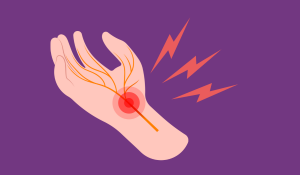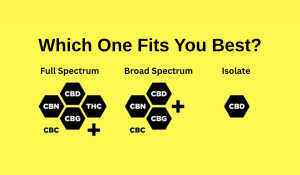CBD oil taken topically has little impact on you because it slowly makes its way to the bloodstream. However, if it is taken through an IV or sublingually, it is important to be wary on how the CBD oil will interact with prescribed medication.
CBD interacts with certain enzymes in the liver thus preventing certain medications from having an effect. It is recommended to take CBD with food.
Today, thousands of people rely on CBD oil and THC products to manage pain. While it can be useful, you need to be aware of how CBD will interact with any other substances you are taking. CBD oil and vape pens may go together well, but you need to be aware of other interactions that could impact your body in ways you do not expect.
When you use CBD oil and topical products, the chemicals are absorbed through the skin. It slowly makes its way to the bloodstream, so there is a reduced chance it will impact you negatively. When you take CBD through an IV or sublingually, then you have to be more cautious with taking CBD oil and prescription drugs simultaneously. Additionally, you need to be wary of how CBD oil and suppository will interact. The research is still out on whether taking suppositories is good for you, so it is best to avoid it for the time being.
CBD oil and food go hand-in-hand. When you take CBD orally, the active ingredients go directly into your digestive system, which is why many doctors recommend taking it with food. In fact, you should eat certain foods before taking any CBD to enhance your absorption rate. Ideally, you want to consume foods with medium chain fatty acids that contain six to 10 carbons. This includes eggs, meats, avocados, nuts, fish and coconut oil.
CBD interacts with certain enzymes in the liver. The prescription drugs you take may also need to access those enzymes, but the CBD prevents them from getting that far. Therefore, you need to talk with your doctor to make sure it is safe to take CBD with your prescription medication. If it will, then you need to find another way to manage pain. Contact us with any questions, and make sure to talk to your doctor before changing your healthcare regimen.

Explore this cbd consumption methods tutorial and follow the step-by-step process to select, use, and verify the safest ways to consume CBD for wellness.
Read More
Learn what CBD edibles are, their main types, expected effects, legal status, safety factors, and how they compare to other forms of CBD.
Read More
Therapeutic Uses of CBD Managing Chronic Pain with CBD Struggling with chronic pain? CBD might help. Studies suggest it can reduce inflammation and alleviate discomfort,...
Read More
Just as CBD may help humans due to its interaction with the body’s endocannabinoid system, the same is true of dogs. CBD has the potential...
Read More
Cannabis has been used for millennia to treat numerous health conditions. Current research offers promising results on the effects of CBD oil on breast cancer.
Read More
What Is CBD for Cats? CBD (Cannabidiol) is a natural compound from hemp. It’s non-psychoactive, meaning your cat won’t get “high.” Instead, it works with...
Read More
1. Understanding Neuropathic Pain Neuropathic pain results from nerve damage or dysfunction, causing symptoms like burning, tingling, or sharp shooting pains. Common Causes: Symptoms Include:...
Read More
CBD for Pets: A Pet Parent’s Guide to Dosage We all want the best for our pets, especially when they’re struggling with pain, anxiety, or...
Read More
What Is Lupus? Lupus is a long-term autoimmune condition that can impact multiple organs, including the skin, heart, lungs, and kidneys. The most common type...
Read More
1. Full-Spectrum CBD: The All-In-One Option What it is: Contains CBD, minor cannabinoids, terpenes, flavonoids — and less than 0.3% THC. Why choose it: Promotes...
Read More